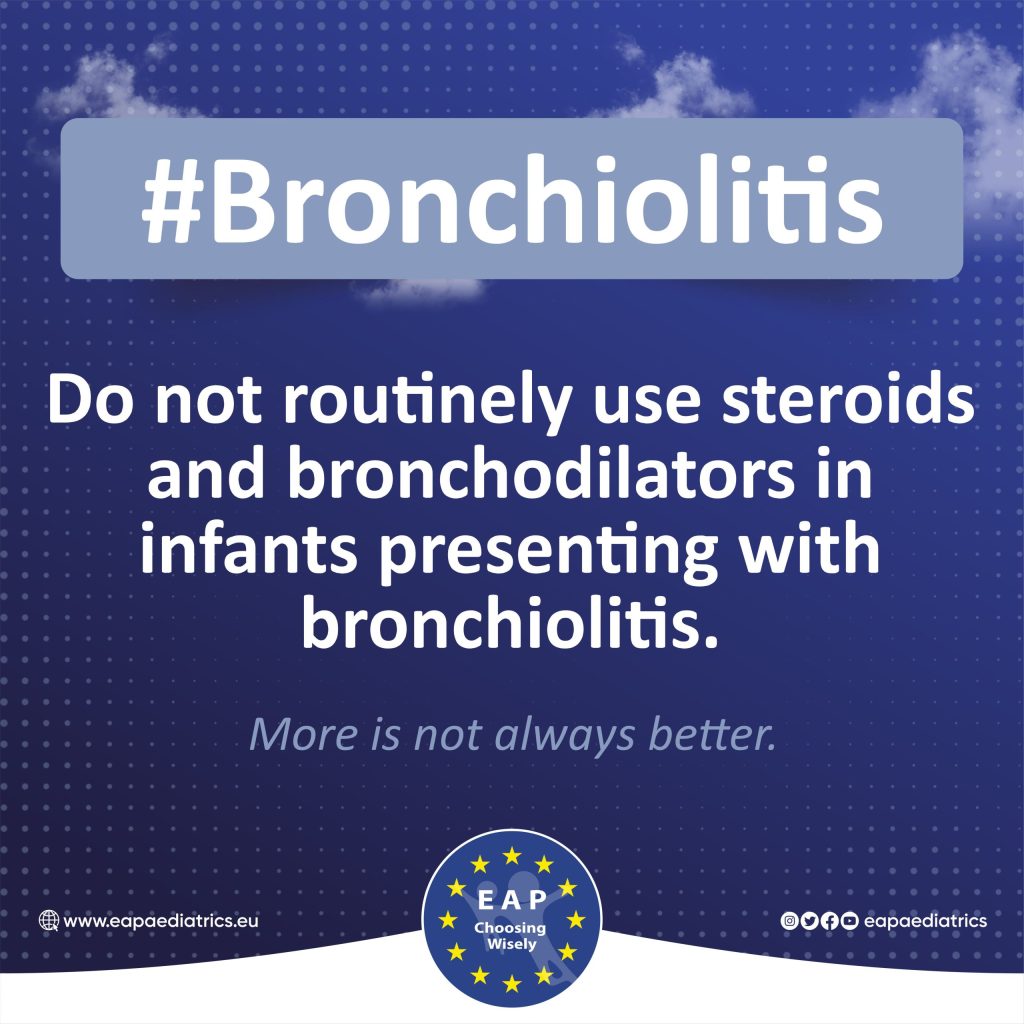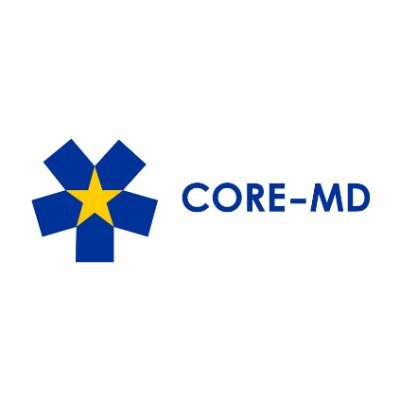
The use of bronchodilators and glucocorticoids did not prove to have any benefits with respect to rates of hospitalization and readmission, duration of the disease and overall disease outcome.
What is known about acute bronchiolitis:
- Acute bronchiolitis is an acute episode of respiratory distress caused by a viral inflammation of the lower respiratory tract mostly in children under the age of two years.
- Management of bronchiolitis should focus on supportive care, hydration, oxygenation, and respiratory support if needed.
- The evidence shows that bronchodilators like salbutamol or adrenalin and/or steroids do not improve oxygen saturation, reduce hospital admissions or shorten the duration of hospitalization and time to resolution of illness in infants with bronchiolitis. Salbutamol is associated with adverse events such as tachycardia, oxygen desaturation and tremors.
How to talk with patients and parents about acute bronchiolitis:
Inform parents that it is a common disease and usually self-limiting respiratory infection in children. RSV goes away on its own, but it may take a week or two to get completely well.
You can give the following advice:
- Irrigate your child’s nose with an isotonic saline
- Allow your child to drink small portions
- Provide your child with the necessary recovery
- Do not expose the child to cigarette
- Encourage
- Re-seek medical advice when the child’s general and respiratory status deteriorates like difficulties breathing, problems with feeding and drinking, blue looking lips or unusual pale skin, fewer wet diapers.
This EAP recommendation is in accordance with Choosing Wisely recommendations of:
Switzerland:
https://www.paediatrieschweiz.ch/choosingwisely/
American Academy of Family Physicians (AFP):
https://www.aafp.org/pubs/afp/collections/choosing-wisely/70.html
References:
- Cahill AA, Cohen J. Improving Evidence Based Bronchiolitis Care. Clin Pediatr Emerg Med. 2018 Mar;19(1):33-39. PMID: 32288646
- Cai Z, Lin Y, Liang J. Efficacy of salbutamol in the treatment of infants with bronchiolitis: A meta-analysis of 13 studies. Medicine (Baltimore). 2020 Jan;99(4):e18657. PMID: 31977855
- Dalziel SR, Haskell L, O’Brien S, Borland ML, Plint AC, Babl FE, Oakley E. Bronchiolitis. Lancet. 2022 Jul 30;400(10349):392-406. PMID: 35785792
- Ralston SL, Lieberthal AS, Meissner HC, Alverson BK, Baley JE, Gadomski AM, et al. Clinical Practice Guideline: The Diagnosis, Management, and Prevention of Bronchiolitis. Pediatrics. 2014 Nov 1;134(5): e1474–502. PMID: 26430140
- Zhang XL et al. Expert consensus on the diagnosis, treatment, and prevention of respiratory syncytial virus infections in children. World J Pediatr. 2024 Jan;20(1):11-25. PMID: 38064012

